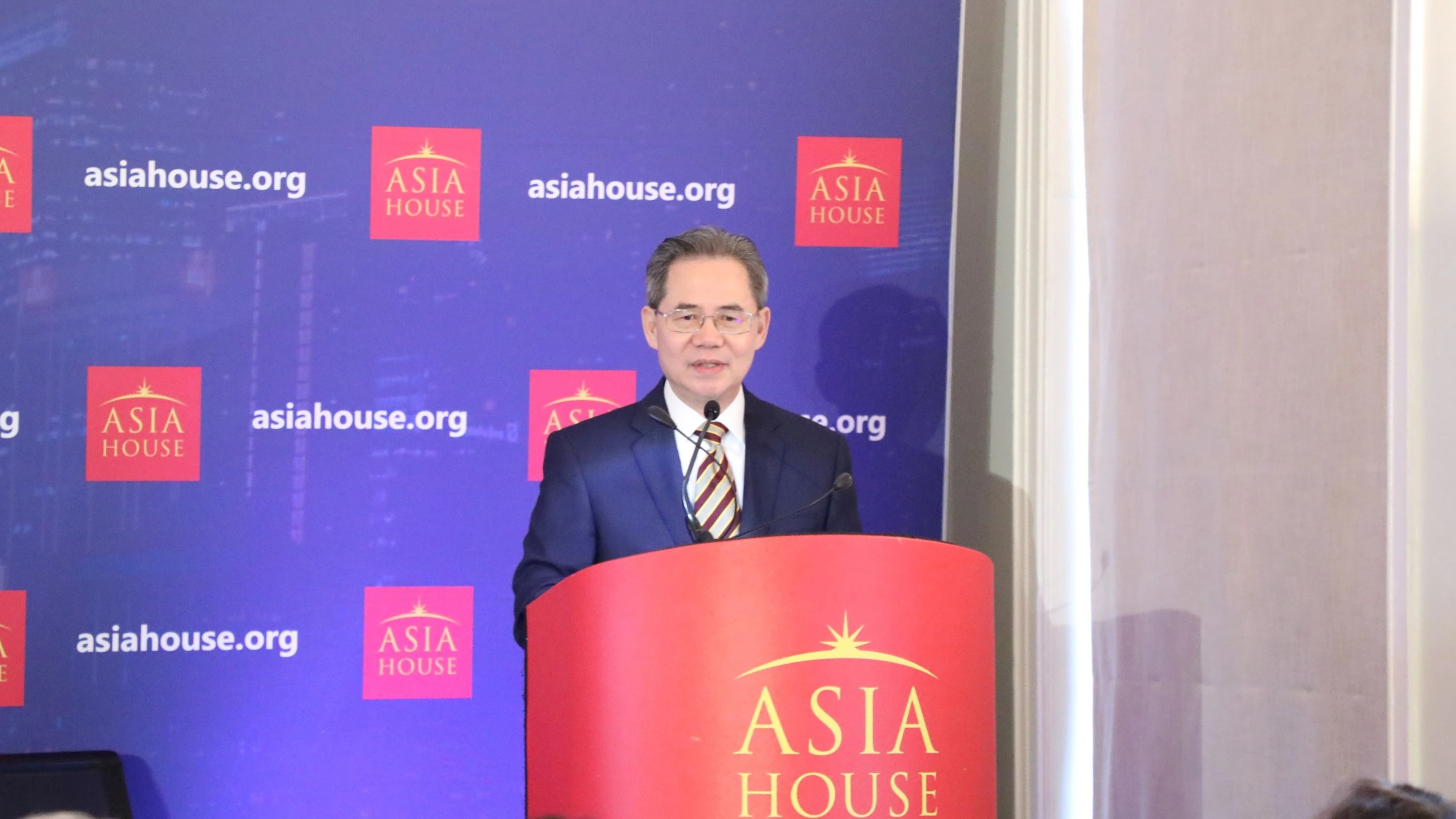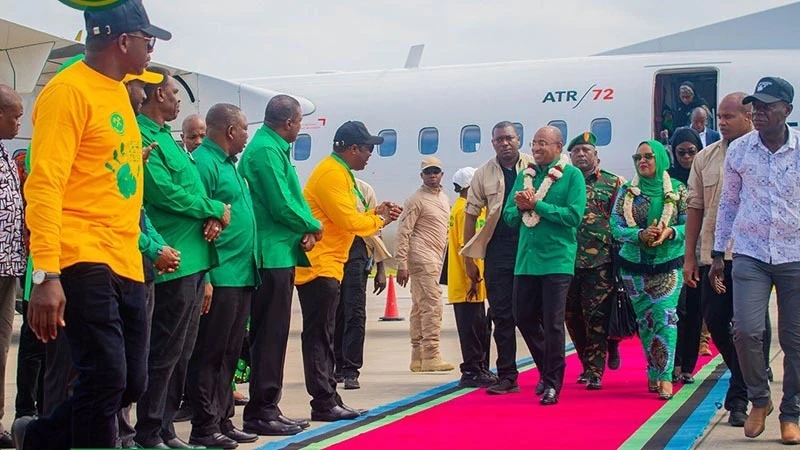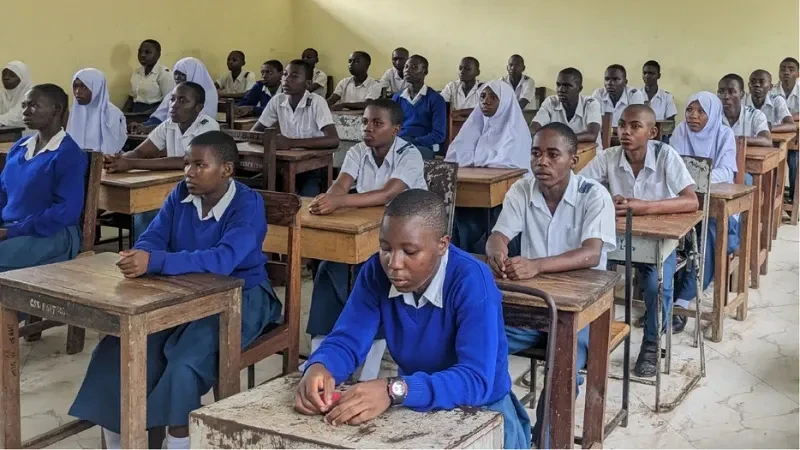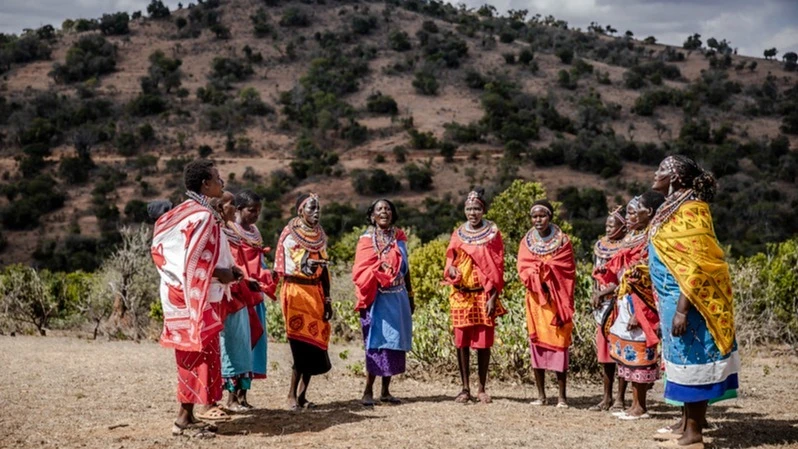Chinese Modernization will Create New Opportunities for Global Development
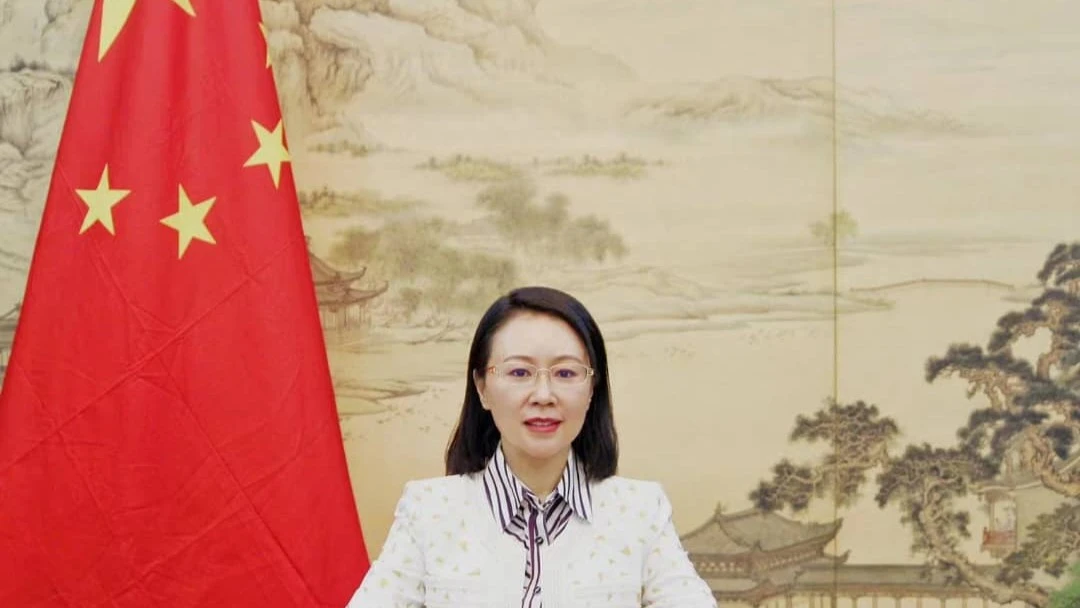
Over the forty years course of reform and opening-up, the Chinese economy has maintained a high growth rate and become the second largest in the world. Its contribution to world economic growth has stayed at around 30 percent annually, making China a main engine driving global economic growth.
Today's China is closely connected and deeply integrated with the world, and its policy initiatives and development directions have a profound impact on the world. The recently held third plenary session of the 20th Central Committee of the Communist Party of China was closely watched by the world. The international community shares the view that the plenary session is of great and far-reaching significance, which will provide much-needed certainty to a world rocked by changes and turmoil, and create broader development opportunities.
The most important outcome is that the session adopted the Resolution of the Central Committee of the Communist Party of China on Further Deepening Reform Comprehensively to Advance Chinese Modernization, focused on the theme of Chinese modernization, and formulated systemic plans for further deepening reform. The session put forward over 300 reform measures, resulting in thousands of specific reform plans, which shall be completed by 2029.
Throughout the full text of the Resolution, the words “reform” occurs 145 times and “opening up” 35 times, demonstrating China’s strong determination and confidence in comprehensively deepening reform and expanding opening-up, sending a strong message that China will expand high-standard opening up and share in the high-quality development outcomes. I would like to highlight the following aspects:
Firstly, we will steadily expand the institutional opening up. In recent years, China has stepped up opening up and the institutional framework innovation, established free trade zones and Hainan Free Trade Port, hosted the China International Import Expo, the China International Consumer Products Expo and the Global Digital Trade Expo. A number of landmark and innovative institutional innovations have been made in the area of liberalization and facilitation of trade and investment, opening up in financial sector and improving business environment.
We will actively foster a first-rate business environment that is market-oriented, law-based, and internationalized. In accordance with the new measures proposed in the Resolution, China will focus on institutional opening up, deepen institutional reform in investment, trade, finance, innovation and other key areas of international exchange and cooperation, improve relevant supporting policy measures, promote alignment with high-standard international economic and trade rules, create an institutional environment that is transparent, stable, and predictable, and elevate opening up to new levels more proactively.
The Resolution also emphasizes that China will unilaterally opening our doors wider to the world’s least developed countries, which is a concrete step by China to promote an open world economy and advance the building of a community with a shared future for mankind. In addition, the progress of Chinese modernization will benefit more underdeveloped countries and their people.
Secondly, we will safeguard the multilateral trading system with the WTO at its core. China will remain firm in pursuing a more proactive strategy of opening up, and oppose trade protectionism and barriers. Since the 18th National Congress of the CPC in 2012, China’s opening up has opened a new chapter, and doubled the number of signing free trade agreements. Our overall tariff level has been cut to 7.3 percent, relatively on par with the developed members in the World Trade Organization.
China has become the world’s largest trader in goods, the second largest in services, and a major trading partner of nearly 200 economies. The Resolution emphasizes that China will continue to participate actively in the reform of global economic governance, expand our globally-oriented network of high-standard free trade areas, and provide more global public goods. We will establish compliance mechanisms that are aligned with prevailing international rules, and optimize the environment for opening up and cooperation.
China has a population of more than 1.4 billion, and over 400 million people in the middle-income bracket are on the rise. It is estimated that for every 1 percentage point increase in the percentage of the total population to middle-income, annual consumption expenditures will increase by more than 150 billion US dollars. As a hyper-scale market with the biggest potential in the world, China’s market will bring infinite business opportunities to its trading partner.
Thirdly, we will promote in both directions of inward and outward investment. At present, China is the world’s second largest user of FDI, and the largest outbound investor globally. By the end of 2022, China’s cumulative ODI stock has ranked among the world’s top three in 11 consecutive years, with 47,000 offshore enterprises spanning 190 countries and regions worldwide, contributing 75 billion US dollars in taxes to their host locations and 2.5 million local job opportunities, boosting local economic development.
The Resolution points out that China will further reform the management systems for inward and outward investment, and protect the rights and interests of foreign investors in accordance with the law. We will expand the catalog of encouraged industries for foreign investment, appropriately shorten the negative list for foreign investment, remove all market access restrictions in the manufacturing sector, and promote wider opening with regard to telecommunications, the internet, education, culture, medical services, and other sectors in a well-conceived way.
We will ensure national treatment for foreign-funded enterprises, improve relevant measures to make it more convenient for people from outside the mainland to live, receive medical services, and make payments in the mainland. Meanwhile, we will refine the institutions and mechanisms for promoting and protecting Chinese investment abroad, improve the management and service systems for outward investment.
Fourthly, we will improve the mechanisms for cooperation under the Belt and Road Initiative. Since the BRI was put forward 11 years ago, over 230 BRI cooperation agreements have been signed with more than 150 countries and 30 international organizations. From 2013 to October 2023, the cumulative value of imports and exports between China and BRI partner countries exceeded 21 trillion US dollars, and two-way investment between China and Belt and Road countries exceeded 270 billion US dollars.
The BRI has become the most popular public good in the world and the largest platform for international cooperation. The new measures proposed in the Resolution will improve the mechanisms for high-quality cooperation under the BRI, continue to implement the Belt and Road Science, Technology, and Innovation Cooperation Action Plan and redouble efforts to develop multilateral platforms for cooperation in green development, the digital economy, artificial intelligence, energy, taxation, finance, disaster mitigation, and other areas.
We will build a multidimensional network to connect countries along the Belt and Road, and make coordinated efforts to advance both major signature projects and “small but beautiful” public welfare projects.
These important measures put forward by the Session will provide institutional safeguards for further deepening reform comprehensively and expanding high-quality opening up, sharing its new development dividends with the world economy. China will uphold humanity’s common values, and promote an equal and orderly multipolar world and a universally beneficial and inclusive economic globalization. We will seek win-win cooperation and common development with the world, so that the fruits of China’s deepening reform comprehensively will benefit all countries fairly.
President Xi Jinping pointed out that “China’s opening drive is not a one-man show. Rather, it is an invitation open to all.” Guided by the vision of building a China-Africa community with a shared future, China-Tanzania practical cooperation has yielded fruitful results, illustrating a microcosm of China’s expanding high-quality opening up. China has been Tanzania’s largest trading partner for 8 consecutive years. In 2023, the bilateral trade volume between China and Tanzania reached 8.78 billion US dollars, an increase of 5.7% year-on-year.
China waived all tariffs on 98% of taxable imports from Tanzania. High-quality Tanzanian agricultural products such as soybeans, avocados and wild aquatic products have made their way to China. Tanzanians have also benefited from the trade between China and Tanzania through their hard work, increasing their incomes and improving their quality of life. China is also the largest source of foreign investment in Tanzania. In recent years, China’s investment projects such as Keda Ceramics, Maweni Cement Plant and Sapphire Float Glass (Tanzania) Factory achieved remarkable results.
The construction of major projects such as the fifth and sixth lots of the Central Standard Gauge Railway, the Nyerere Hydropower Station, and the Magufuli Bridge by Chinese enterprises in Tanzania is steadily advancing. Our bilateral practical cooperation has contributed significantly to the diversification of Tanzania’s trade, its economic transformation, and the improvement of the livelihoods of its people.
The 2024 Summit of the Forum on China-Africa Cooperation (FOCAC) will be held in Beijing in early September. H.E. President Samia Suluhu Hassan will be invited to attend the event, and along with H.E. President Xi Jinping and African leaders, will celebrate China-Africa friendship, explore cooperation and chart the course for the future under the theme of “Joining Hands to Advance Modernization and Build a High-Level China-Africa Community with a Shared Future”, reaching important new consensus.
China is willing to take this opportunity to work with Tanzania to jointly implement the vision of a community with a shared future for mankind, deepen China-Tanzania comprehensive strategic cooperative partnership. China will deepen reform to promote greater opening-up, and in return will share new impetus, new dividends and new opportunities with Tanzania and other nations in the world through greater opening-up, so that the Chinese and African people and the Chinese and Tanzanian people continue to benefit from the relationship and build a better future.
Top Headlines
© 2025 IPPMEDIA.COM. ALL RIGHTS RESERVED










